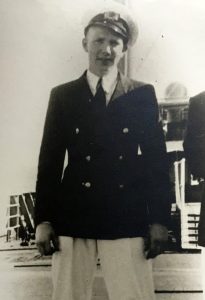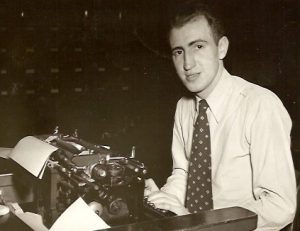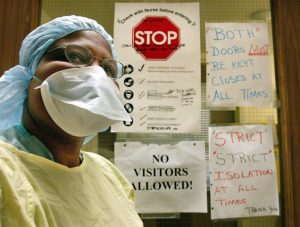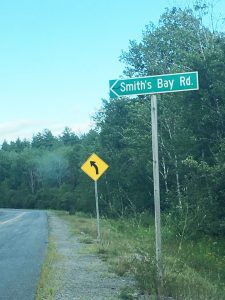
I wasn’t expecting to be surprised. This particular public-speaking event seemed straight forward. I’d arrived early and worked with the tech guy to get my presentation ready. I’d met with the bookseller to pre-inscribe some books. Then, I sat watching people file in. Then, a face registered, and her name tag – Jane Hutchison. She spotted me and came right over.
“Hi, Ted,” she said with a smile. “I’m John Dougall’s niece.”
“What are you doing here?” And I gave her a hug.
She said she was a longtime member of Canadian Club of Halton and heard that I’d been invited to speak about those who’d served at sea in the Battle of the Atlantic (the subject of my latest book). She said she didn’t want to miss this event, since the subject was near to her heart. (more…)







